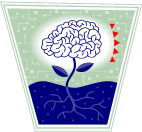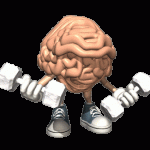Avoid Falling into These Common Decision Traps
Life is made up of a handful of critical decisions, hundreds of important decisions and literally thousands of minor decisions. Taking the time to develop good decision-making skills is well worth the investment. We will cover the topic regularly in the Next Brain Blog.
One proven way to enhance your decision-making skill is to actively manage the traps (also known as cognitive biases) that we can fall into. The Hidden Traps in Decision Making is an easy-to-read primer filled with practical advice. The traps or cognitive biases it covers include, for example:
- ANCHORING: Overemphasizing the first information you recieve
- STATUS QUO: Selecting alternatives that best fit what you are currently doing
- SUNK COST: Making decisions that support past decisions
- CONFIRMING EVIDENCE: Seeking and accepting information that supports your current or preferred point of view.
 We all have these tendencies. They cannot be eliminated, they are part of how our brain works. We have them because they provide strong advantages in certain circumstances. The key is to be aware of them and take simple steps to make sure they don’t trap us into making poor decisions. For example, one way to avoid the confirming evidence trap is to be sure you always find an equal amount of evidence for and against your prevailing point of view. Or ask another to scout the opposing evidence that you might be biased against seeing as relevant.
We all have these tendencies. They cannot be eliminated, they are part of how our brain works. We have them because they provide strong advantages in certain circumstances. The key is to be aware of them and take simple steps to make sure they don’t trap us into making poor decisions. For example, one way to avoid the confirming evidence trap is to be sure you always find an equal amount of evidence for and against your prevailing point of view. Or ask another to scout the opposing evidence that you might be biased against seeing as relevant.
Turns out we are loaded with dozens of biases that impact how we learn, perceive the world, make decisions, socially interact and perform other cognition-intense tasks. There will be a lot to blog about. Look forward to comments on how you have learned to manage decision-making or other types of cognitive biases.
Categories: Decision Making, Training Tags: cognitive bias
Practice Mindfulness to Sharpen Mind and Perhaps Build a Bigger Brain
 Studies have shown that if you spend a lot of time juggling or playing a musical instrument the parts of your brain that supports these activities grows bigger. London taxi cab drivers that spend a decade memorizing elaborate routes experience significant brain changes. These facts support a major premise behind this blog namely, we are far more in charge of the shape, size, longevity and performance of our brain than we realize.
Studies have shown that if you spend a lot of time juggling or playing a musical instrument the parts of your brain that supports these activities grows bigger. London taxi cab drivers that spend a decade memorizing elaborate routes experience significant brain changes. These facts support a major premise behind this blog namely, we are far more in charge of the shape, size, longevity and performance of our brain than we realize.
It would stand to reason that people who meditated extensively should have bigger brains. I have found a few studies that that support this idea but there is not enough data for a firm conclusion. In one study:
“Our data suggest that meditation practice can promote cortical plasticity in adults in areas important for cognitive and emotional processing and well-being,” says Sara Lazar, leader of the study and a psychologist at Harvard Medical School. “
In a second study:
“Using MRI scans the scientists show that there was “significantly larger cerebral measurements in mediators”.
No matter, even if mediation does not grow your brain there have been studies that demonstrate improved clarity of thinking, enhance self-control, reduced stress and self-reported well being. As such it is an important option for improving cognitive performance and will be a frequent topic on the Next Brain Blog.
 Buddhist insight mediation that advocates focusing on sensation rather than our thoughts of sensation seems to produce results. It is similar to the more modern movement of mindful mediation that focuses on “being in the moment”. Finally, there is a third, non-mediative approach to mindfulness that we will explore. It is based on the contemporary work of Ellen Langer and seeks to achieve a heightened state of situational awareness of conscious control over thoughts and actions. Insight mediation, mindful mediation and cognitive mindfulness.
Buddhist insight mediation that advocates focusing on sensation rather than our thoughts of sensation seems to produce results. It is similar to the more modern movement of mindful mediation that focuses on “being in the moment”. Finally, there is a third, non-mediative approach to mindfulness that we will explore. It is based on the contemporary work of Ellen Langer and seeks to achieve a heightened state of situational awareness of conscious control over thoughts and actions. Insight mediation, mindful mediation and cognitive mindfulness.
If you are interested in giving it a try I suggestion action over reading. Try this simple five-step experiment in mindful meditation.
Source: Mindfulness Image
Categories: Ancient Ways, IQ and EQ, Manage Emotions, Mental Focus, Training Tags: Buddhist, meditation, mindfulness
How Fast Can You Read and Does it Matter?
Reading is a primary means of absorbing new information and knowledge. Improving your ability to read – faster, better comprehension and in novel ways – enhances learning capacity and creativity and so it will be a frequent topic on the Next Brain Blog.
 Increasing your reading speed without losing comprehension means saving time or read more in the same amount of time. If you normally read for an hour a day increasing your reading speed from 250 words per minute (international average) to 6oo means you can read approximately 150,000 words more per week. This is the equivalent of a meaty non-fiction book every week or 52 every year.
Increasing your reading speed without losing comprehension means saving time or read more in the same amount of time. If you normally read for an hour a day increasing your reading speed from 250 words per minute (international average) to 6oo means you can read approximately 150,000 words more per week. This is the equivalent of a meaty non-fiction book every week or 52 every year.
How fast do you read? Take this quick free test from RocketReader and find out.
There are proven techniques for increasing reading speed. For example, guiding, skimming and grouping are all proven to work. Other less proven techniques include minimizing subvocalization (talking aloud to yourself while reading) and widening your visual span (number/lengths of words you can taken in at a glance). You can learn to speed read from programs, books, workshops or software. We will discuss all these techniques and options on the Next Brain Blog. Let’s start with software as it affords easy experimentation as well as a good way to be systematic.
There are many software packages on the market that promise to improve your reading skills. Check out TopTenReviews of Speed Reading Software to get a quick overview of what is available. Prices range from $12 to $80 and the more fully features packages are likely worth the extra cost.
I plan on taking the Reader’s Edge (top-rated speed reading software) 30-day challenge and will blog on the results. In the meantime, if you have used speed reading software please post a comment and share your experiences and results.
Categories: Memory and Learning, Software, Training Tags: speed reading
Resistance Training Once per Week Improves Mental Functioning by 10+%
In the Next Brain Blog we track down and report on a full-range of ways to improve the function and longevity of your brain and mind. There are many studies that prove physical exercise is good for your brain fitness and mental health.
But what type should you do, what specifically does it improve and how long do the effects last? A new piece of research reported in the Archives of Internal Medicine on Resistance Training and Executive Function gives some specific answers.
 They found that for older female adults resistance training (dumbbells and weight machines) one or twice a week for a year improved their abilities to plan, make decisions, focus and resolve conflicts by more that 10%. These mental tasks all belong to what is called your executive function.
They found that for older female adults resistance training (dumbbells and weight machines) one or twice a week for a year improved their abilities to plan, make decisions, focus and resolve conflicts by more that 10%. These mental tasks all belong to what is called your executive function.
This is an impressive finding because it gives specifics on the type of exercise and the impact it will have. More to the point:
You can get a big boost in mental performance from a modest weekly investment in resistance training.
You don’t need to go to the gym or use fancy weight machines – low cost home exercise equipment will do the trick.
By the way, you can measure the efficiency of your executive function using the Stroop Test. I will blog on that later in the month.
Source: Image
Categories: Cognitive Decline, Decision Making, Lifestyle, Mental Focus, Older Adult, Training Tags: exercise, Stroop Test
Take a Waking Rest After Learning to Boost Retention
 The core idea behind YourNextBrain! is that we have a wide-variety of ways to improve how our minds and brains work. You can for example, improve how keenly you perceive the world, make decisions, solve problems, manage emotions and generate new ideas. You can even improve how you learn. This is called learning-to-learn.
The core idea behind YourNextBrain! is that we have a wide-variety of ways to improve how our minds and brains work. You can for example, improve how keenly you perceive the world, make decisions, solve problems, manage emotions and generate new ideas. You can even improve how you learn. This is called learning-to-learn.
Making a conscious effort to improve our learning processes can pay a big dividend. Learning is both lifelong and lifewide – we are learning all the time and everywhere. Even a small improvement in how we learn is magnified greatly. That’s why I was excited to see the results of a new scientific study from New York University, A Mind at Rest Strengthens Memories, that offers a simple but powerful technique for improving how we learn. What they found is that memories are strengthen during periods of rest even when we are awake. The researchers advise:
“Taking a coffee break after class can actually help you retain that information you just learned,” explained Lila Davachi, an assistant professor in NYU’s Department of Psychology and Center for Neural Science, in whose laboratory the study was conducted. “Your brain wants you to tune out other tasks so you can tune in to what you just learned.”
Of course you don’t need to take a coffee break or be learning by going to class – the principle should work for any form of wakeful resting and learning activity.
For a little more background and insight check out the 4.5 minute video by the researcher.
____________________________________________________________
Source for blue glowing brain image can be found here.
Categories: Lifestyle, Memory and Learning Tags:
Amount of Sugar in Your Blood Impacts Decision-Making Big Time!
 You get a lot of advice on how to make better decisions – sleep on it, shop around, go with your gut and so on. Although a lot of this type of advice sounds like common sense it can be loaded with cognitive biases and decision traps.
You get a lot of advice on how to make better decisions – sleep on it, shop around, go with your gut and so on. Although a lot of this type of advice sounds like common sense it can be loaded with cognitive biases and decision traps.
Learning to make better decisions is a big part of what YourNextBrain! (improving your mind and brain) is about so it will be a frequent topic on this blog. We will look at two aspects:
- Uncovering the biases and traps in everyday decision-making and talking about how to manage them.
- Discussing what decision-making advice holds up under scientific study and how to put it to use.
For example, a recent study reported on the Physorg blog, Got a Decision to Make? Get Some Sugar in Your System, found that our ability to delay gratification is improved if we have sugared up. More specifically, they found that taking a sugary drink actually improves our ability to focus on a larger future payoff versus a smaller but more immediate payoff. This is key for making many types of decision especially about managing money and health. It also supports the common sense advice of never go food shopping hungry.
Higher blood sugar levels means you are less likely to decide impulsively.
Categories: College Student, Decision Making, Diet Tags:
Critical Reasoning Sharpens the Mind But Takes Mega Effort to Develop
 Thinking or reasoning critically is a key cognitive skill. It means we know how to question assumptions, see the logic or lack of logic in an argument, draw sound conclusions from evidence, find root concepts and causes, generate possibilities systematically, avoid decision traps and cognitive biases, see things from multiple points of view and otherwise rigorously deal with ambiguity.
Thinking or reasoning critically is a key cognitive skill. It means we know how to question assumptions, see the logic or lack of logic in an argument, draw sound conclusions from evidence, find root concepts and causes, generate possibilities systematically, avoid decision traps and cognitive biases, see things from multiple points of view and otherwise rigorously deal with ambiguity.
Critical thinking is so important that it has been a major area of focus since the time of the ancient Greek philosophers. But it is not just a philosophical thing. For example, in a recent post on the Harvard Business Review’s blog How Leaders Should Think Critically, the authors argue that it is a fundamental skill for today’s business leaders and students. Of course the same arguments apply to non-business school students and leaders as well as everyone trying to make their way in today’s complex society.
In short, enhancing critical thinking is an important option for anyone interested in building a sharper mind and will be a regular topic on this blog.
But how can you improve it? Self-study using a book or web resource is a good way. I’ll make a couple of recommendations below. You can also scout out a class or seminar at a location near you. For those who like a more guided approach, you can contract the services of a tutor or philosophical counselor.
No matter how you start please be sure to share your experiences with other readers of this blog.
For a good introductory text on critical reasoning see, Thought and Knowledge: An Introduction to Critical Reasoning. It is relatively inexpensive, easy to read and covers basic and advanced topics. It has a more psychological than philosophical orientation and provides nice chapter summaries. You can access it online on Questia here.
For a very comprehensive free treatment, check out Critical Reasoning a User’s Manual (version 3.0). It is a 640-page (3 MB) PDF. It is also available online in the document reader Scribd here.
Both these resources will take an enormous effort to get through! If you are aware of a better general introduction please comment on this post. In the meantime, I will blog on specific techniques that you can use to build critical reasoning skills with much less effort.
Categories: Ancient Ways, Books, Decision Making, Problem Solving, Training Tags: critical reasoning, critical thinking
Two Cups of Blueberry Juice Daily Significantly Improves Memory
What we eat and drink as well as the medications and supplements we take can strong determine the effectiveness of our cognitive functions and how long we have a health brain. Expect to see many posts on ingestibles and how they can be used to develop YourNextBrain! in this blog.
Sometimes we will debunk findings. For example the post, Herb Fails to Prove Out as Cognitive Enhancer, reviews evidence that Ginko Biloba the popular memory supplement does not work. Other times we will present brand new but preliminary positive findings. For example, the recent news release from the American Chemical Society that presents First Ever Evidence that Blueberry Juice Improves Memory in Older Adults. This is an exciting finding.
To quote:
“In the study, one group of volunteers in their 70s with early memory decline drank the equivalent of 2-2 l/2 cups of a commercially available blueberry juice every day for two months. A control group drank a beverage without blueberry juice. The blueberry juice group showed significant improvement on learning and memory tests, the scientists say. “These preliminary memory findings are encouraging and suggest that consistent supplementation with blueberries may offer an approach to forestall or mitigate neurodegeneration,” said the report.”
A preliminary result but it does encourage some sensible personal experimentation. It would not be too hard to swap out a daily drink such as orange juice or a bottled water with blueberry juice. Simple before/after memory tests can be used to see if you are making any headway.
I am very interested to hear from readers with ideas or examples of personal experiments with blueberries as memory enhancers.
Categories: Diet, Memory and Learning, Older Adult Tags: fruit
Do You Have You Membership to a Brain Gym?
 Over the last five years dozens of companies offering software to “train your brain” have sprung up. The software is often a structured time-based test or some form of a game. It can run on your PC , game console or even your smart phone. The idea is to give your brain a work out much like going to a gym. To see a brain working out click on the image to your right.
Over the last five years dozens of companies offering software to “train your brain” have sprung up. The software is often a structured time-based test or some form of a game. It can run on your PC , game console or even your smart phone. The idea is to give your brain a work out much like going to a gym. To see a brain working out click on the image to your right.
But what are they proven to do for your brain? Many claim to improve memory, visual perception, planning and help avoid cognitive decline as we age. Most have studies that show you will improve on the tasks in the software but what is less clear is if that transfers to doing similar cognitive tasks in other setting such as those in daily living or at work.
Brain or cognitive training software is rapidly advancing and will be a regular topic on this blog. There is little doubt that it is an important tool for building YourNextBrain!
![]() To give brain fitness software a try, click on this demo of the Personal Coach from CogniFit (you may need to scroll down the page and click the demo button). To get a better understanding of how CogniFit approach brain training works watch a 3-minute video of why it is effective.
To give brain fitness software a try, click on this demo of the Personal Coach from CogniFit (you may need to scroll down the page and click the demo button). To get a better understanding of how CogniFit approach brain training works watch a 3-minute video of why it is effective.
I am not endorsing the CogniFit product just offering it as an example. If you are interested in this type of technique for building YourNextBrain! comment on this post and I will reply with a list of leading vendors and products.
Looking forward to hearing about your experiences at the brain gym.
———————————————————————————————–
Source for image above of brain exercising can be found here.
Categories: Memory and Learning, Other, Perception, Problem Solving, Software, Training Tags: brain fitness, brain gym, brain training, cognitive fitness
Measure Your EQ & Build Emotional Intelligence
Over the last two decades we have done the science to know that being smart about emotions is the key to life success. A common sense conclusion for many but with the science we now have the tools for systematically getting better at it.
 Some argued that your emotional quotient (EQ) is more important than your intelligence quotient (IQ) when it come to achieving success. Emotional smarts over book smarts. This is true because emotions play a critical role in learning, problem solving, decision making, creativity, collaborating and many other brain-heavy activities. So it should be no surprise that being smart about emotions – being able to spot them, harness them to positive outcomes and even generate them on demand – is a cornerstone for success.
Some argued that your emotional quotient (EQ) is more important than your intelligence quotient (IQ) when it come to achieving success. Emotional smarts over book smarts. This is true because emotions play a critical role in learning, problem solving, decision making, creativity, collaborating and many other brain-heavy activities. So it should be no surprise that being smart about emotions – being able to spot them, harness them to positive outcomes and even generate them on demand – is a cornerstone for success.
Focusing on EQ and strengthening emotional intelligence is key to developing YourNextBrain! It will be a frequent topic on this blog. To get started check out the post from Psychology Today on Emotional Intelligence. They provide a crisp definition:
“Emotional intelligence is the ability to identify and manage your own emotions and the emotions of others. It is generally said to include three skills:
 emotional awareness, including the ability to identify your own emotions and those of others;
emotional awareness, including the ability to identify your own emotions and those of others;- the ability to harness emotions and apply them to tasks like thinking and problems solving;
- the ability to manage emotions, including the ability to regulate your own emotions, and the ability to cheer up or calm down another person.”
As well as links to many great overview articles.
If you are considering building up your emotional intelligence I suggest you start by measuring it:
- Quick Measure (17 questions and 10 minutes)
- In Depth Measure (106 questions and 30 minutes)
Please share what you learn about your EQ and experiences you have had in improving it.
Categories: IQ and EQ, Manage Emotions Tags: emotion, EQ

